
- Kevin McCallum
- Rosanne Greco (left), a retired Air Force colonel who opposes the F-35, and her attorney, James Dumont, address a crowd in Burlington Thursday.
Opponents of the decision to base F-35 fighter jets in Burlington say newly obtained documents suggest the aircraft will likely be far louder than the U.S. Air Force and Vermont Air National Guard have previously acknowledged.
With the arrival of the next generation fighters just weeks away, critics led by Rosanne Greco, a retired Air Force colonel, are demanding the secretary of the Air Force block the basing of the plane at Burlington International Airport until new sound studies can be conducted.
They argue that
sound studies predicting how the fighter would affect the area assumed that the jets would use their afterburners less than 5 percent of time. New documents, however, suggest afterburner usage might be 10 times that much — or more, Greco said.
“The Air Force finally had to admit to the public what they knew for a long time — that at the large Air Force bases where the F-35 is currently flying … they are taking off in afterburner 50 to 100 percent of the time,” Greco said at a press conference Thursday outside Sen. Patrick Leahy's (D-Vt.) Burlington office.
Greco said the higher use of afterburners at other bases is “well known,” but she could not provide any documentation to support her claim. Instead, she and attorney James Dumont pointed to an email Greco said she received last week from a source.
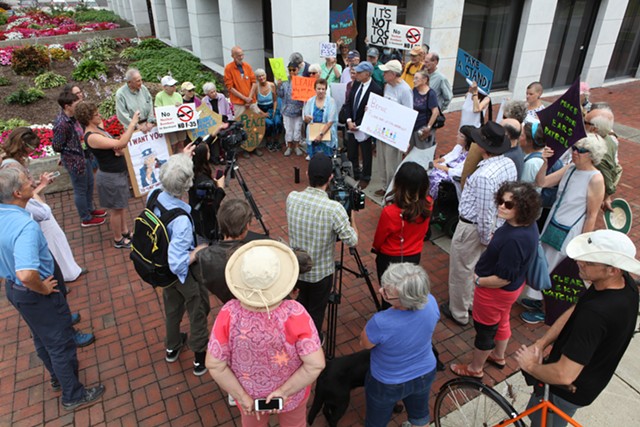
- Kevin McCallum
- The crowd at Thursday's press conference
The message, a copy of which she provided to
Seven Days, appears to be from a civilian engineer who works for the Air Force in Tucson, Ariz.
The jargon-laden email says “the (Air Force) has decided to delay” a new round of environmental studies for a base in Fort Worth, Texas, citing “discrepancies and concerns over F-35 flight elevations and afterburner usage.”
Instead of assuming a 5 percent afterburner usage, new studies would examine different use levels of up to 50 percent, according to the email, a decision that would delay the process by four to six months. The author of the email, according to Greco, uses a profane military phrase in the message that starts with the word "cluster."
“It’s all just a big Charlie Foxtrot that could have been addressed over a year ago when we all questioned the validity of using only 5 percent afterburners," the email reads.
The author of the email, Christopher Brewster, did not return an email and phone call requesting comment.
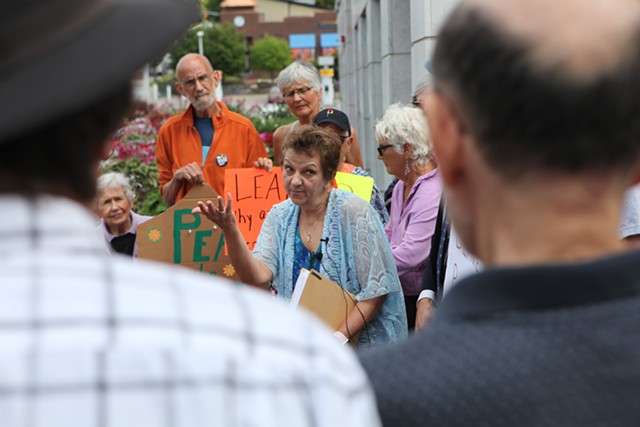
- Kevin McCallum
- Rosanne Greco
Dumont argued that even a slight increase in the use of afterburners represents a significant change in findings of the Vermont study and could open it up to new legal challenges.
“The use of afterburners during takeoff terrifically increases the noise impacts,” Dumont said.
He noted that U.S. District Court Judge Geoffrey Crawford, in rejecting opponents’
legal challenge to the study, specifically referred to VTANG's operational plan as a “prohibition on the use of afterburners at takeoff.”
Maps released in May showed that the number of dwelling units around the airport affected by high noise will nearly triple, to 2,640, by 2023. The number of people in the zone will rise to about 6,125.
Mikel Arcovitch, public affairs officer for the Vermont National Guard, said he couldn’t speak for other bases, but he said that “nothing has changed for Vermont.”
“We will use military power 95 percent of the time and afterburner 5 percent,” Arcovitch wrote in an email.
Leahy spokesperson David Carle said opponents have a "fixation" on the notion that the environmental study for Burlington was rigged. He said it is far from clear if the civilian engineer who wrote the email is correct that environmental studies for Fort Worth were being delayed and revamped.
But even if it is delayed, Carle said it doesn’t mean much.
“Vermonters should know that [the Texas base] is a much larger, and different, base than Burlington, and that Vermont has a Guard willing to adjust their flying operations to be better neighbors,” Carle wrote in an email.









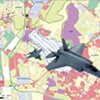
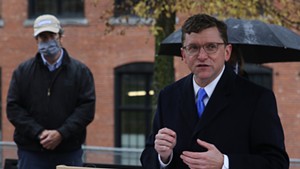
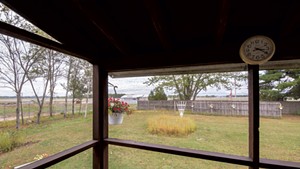
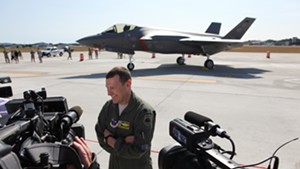
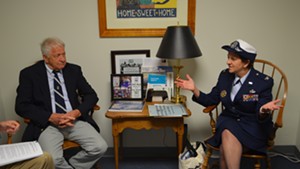




Comments (27)
Showing 1-25 of 27
Comments are closed.
From 2014-2020, Seven Days allowed readers to comment on all stories posted on our website. While we've appreciated the suggestions and insights, right now Seven Days is prioritizing our core mission — producing high-quality, responsible local journalism — over moderating online debates between readers.
To criticize, correct or praise our reporting, please send us a letter to the editor or send us a tip. We’ll check it out and report the results.
Online comments may return when we have better tech tools for managing them. Thanks for reading.